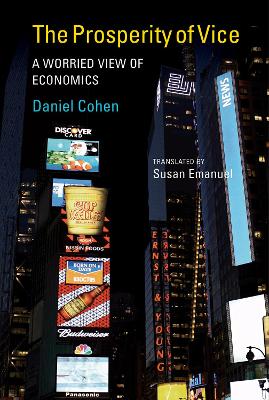The MIT Press
4 total works
"Globalization" has become a loaded term. Should we believe, literally, that trade with poor nations can be blamed for our "impoverishment"? In this book, Daniel Cohen claims that there is practically no foundation for such an alarmist position. We need to reverse the commonly held view that globalization has caused today's insecure labor market. On the contrary, Cohen argues, our own propensity for transforming the nature of work has created a niche for globalization and given it an ominous dimension, causing some to reject it. Pursuing this erroneous line of thought will place the battle for social welfare "on the sidelines" when it should be fought "on the inside." Such errors in analysis must not persist; as Cohen says, the stakes are too high.
How violence, rather than peace, has historically accompanied prosperity; and why emerging nations seem poised to repeat the tragic history of the industrialized world.
What happened yesterday in the West is today being repeated on a global scale. Industrial society is replacing rural society: millions of peasants in China, India, and elsewhere are leaving the countryside and going to the city. New powers are emerging and rivalries are exacerbated as competition increases for control of raw materials. Contrary to what believers in the "clash of civilizations" maintain, the great risk of the twenty-first century is not a confrontation between cultures but a repetition of history. In The Prosperity of Vice, the influential French economist Daniel Cohen shows that violence, rather than peace, has been the historical accompaniment to prosperity. Peace in Europe came only after the barbaric wars of the twentieth century, not as the outcome of economic growth. What will happen this time for today's eagerly Westernizing emerging nations?
Cohen guides us through history, describing the European discovery of the "philosopher's stone": the possibility of perpetual growth. But the consequences of addiction to growth are dire in an era of globalization. If a billion Chinese consume a billion cars, the future of the planet is threatened. But, Cohen points out, there is another kind of globalization: the immaterial globalization enabled by the Internet. It is still possible, he argues, that the cyber-world will create a new awareness of global solidarity. It even may help us accomplish a formidable cognitive task, as immense as that realized during the Industrial Revolution-one that would allow us learn to live within the limits of a solitary planet.

